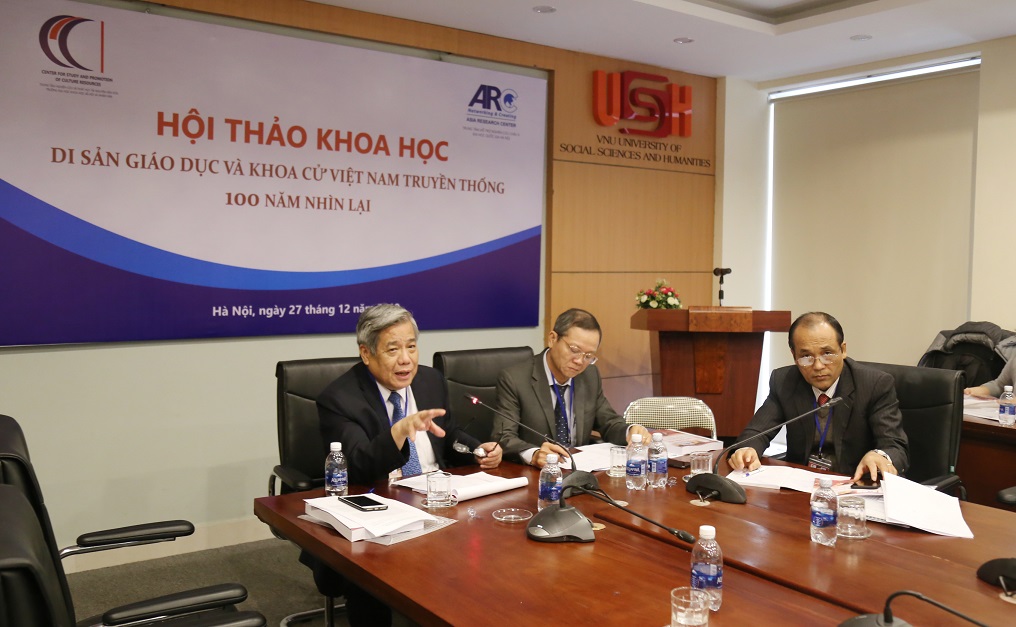
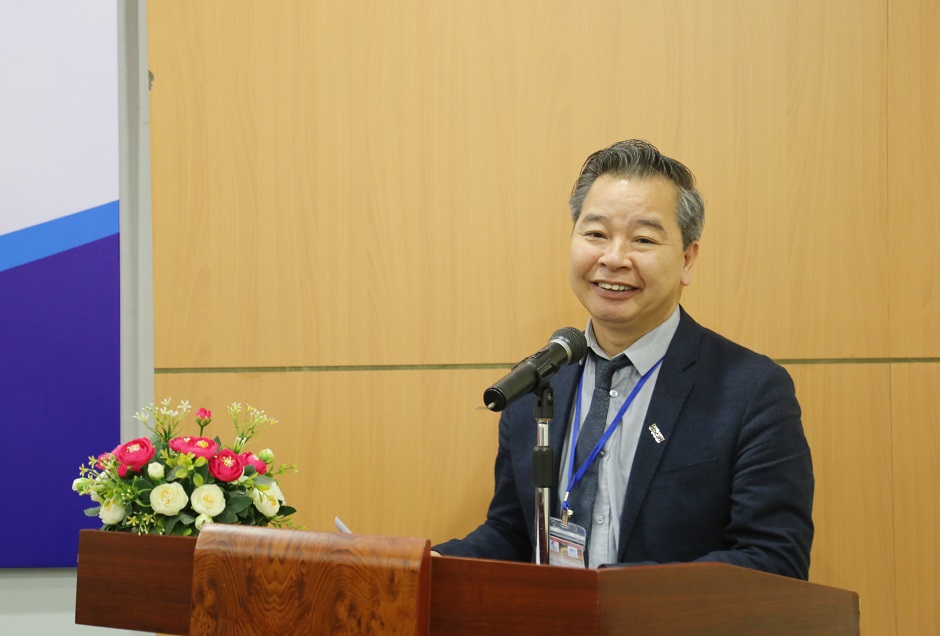 \
\
Professor, Principal Pham Quang Minh delivered the opening speech at the conference.
In Vietnamese history, education and examinations, to some extent, were formed during the period of Chinese domination but only began to develop during the Ly Dynasty - starting with a series of events: the establishment of the Temple of Literature (1070), the examination (1075), and the construction of the Imperial Academy (1076). From then on, through the Tran - Ho dynasties and especially the early Le Dynasty, education and examinations were increasingly developed and perfected. During the Nguyen Dynasty, on the basis of inheriting and continuing traditions, under new conditions, a system of official education was re-established from the central to local levels, playing a leading role in the entire contemporary education system, at the same time continuing to exist and widely develop the folk education system.
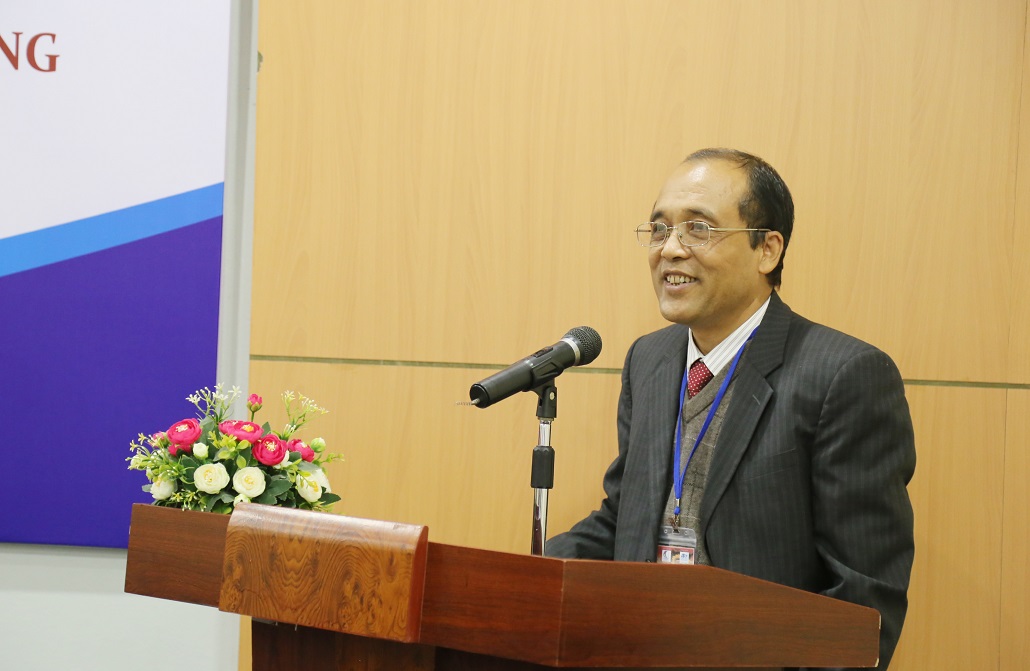
Associate Professor, Dr. Vu Van Quan - Head of History Department, Director of Center for Research and Promotion of Cultural Resources
The last Confucian examination took place exactly 100 years ago and this is considered the end of the traditional education and examination system. It was replaced by an education system arranged by the French and after the August Revolution in 1945, a new education system under the independent government of the Democratic Republic of Vietnam.
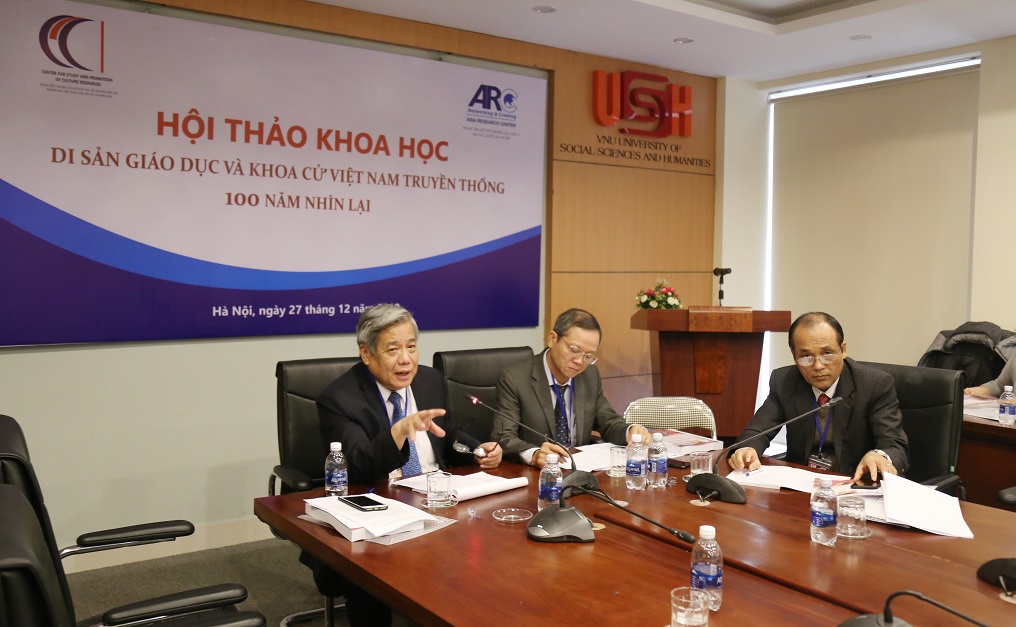
According to Associate Professor, Dr. Vu Van Quan - Head of the Department of History, University of Social Sciences and Humanities, the education and examination system of Vietnam in the Middle Ages has been studied and published by many scientists, addressing all aspects of the issue from history, politics to culture. But until now, this has always been an attractive content, attracting the attention of scientists due to its great influence on the entire social life of Vietnam. This conference was organized by the Center for Research and Promotion of Cultural Resources with the desire to contribute more discussions and re-evaluate the legacies of traditional education and examinations in contemporary life, thereby drawing lessons and proposing solutions to promote the core values of traditional education in today's society.
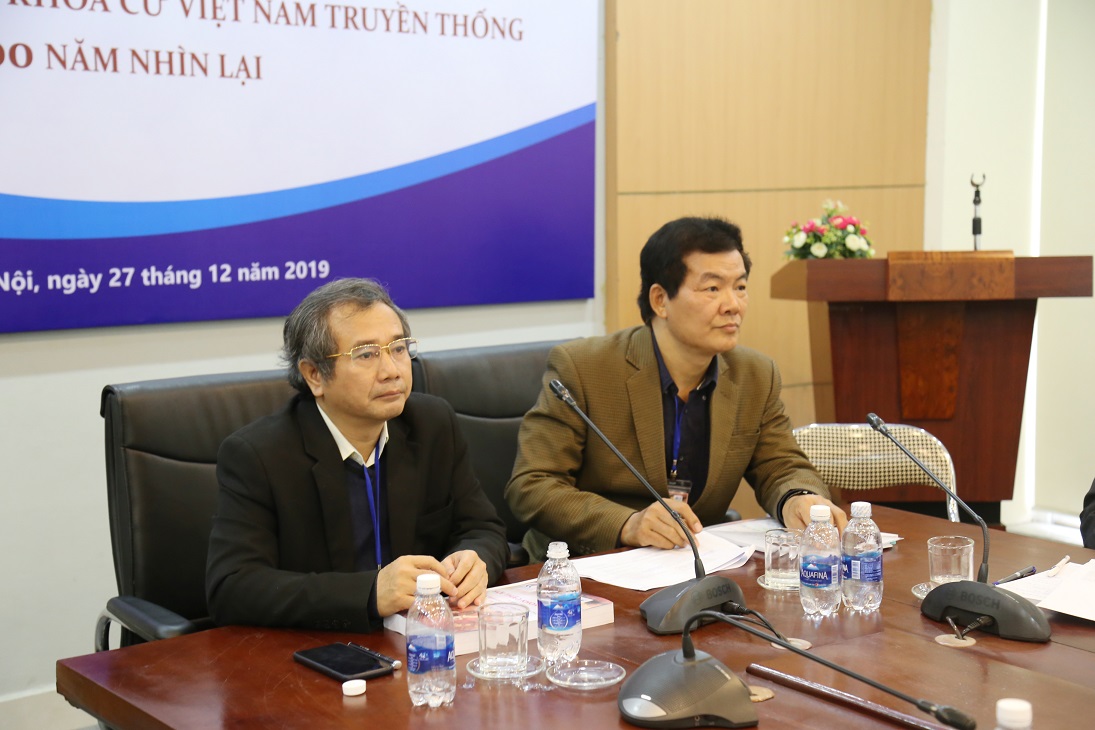
The workshop focused on three main topics.
One isEducation and imperial examinations in Vietnamese cultural history. The reports on this topic both approach the historical process of traditional education and examinations and approach each aspect of the problem. There are reports that look at the history of education and examinations with timelines from the Ly to the Nguyen dynasties or summarize the entire achievements of examinations through the perspective of the Confucian Doctorate team. In each aspect, the authors have a new approach even though they mention topics that are not new such as: the behavior of Confucian scholars in the 17th and 18th centuries through the case of the Vu family in Mo Trach, Hai Duong; the two-way impact of Confucian education and examinations on villages; Confucian scholars with the formation and development process of miracles in Vietnam; compare the traditional education organization methods of Northeast Asian countries; comparative approaches to the educational policies of England in Malaysia and France in Vietnam...
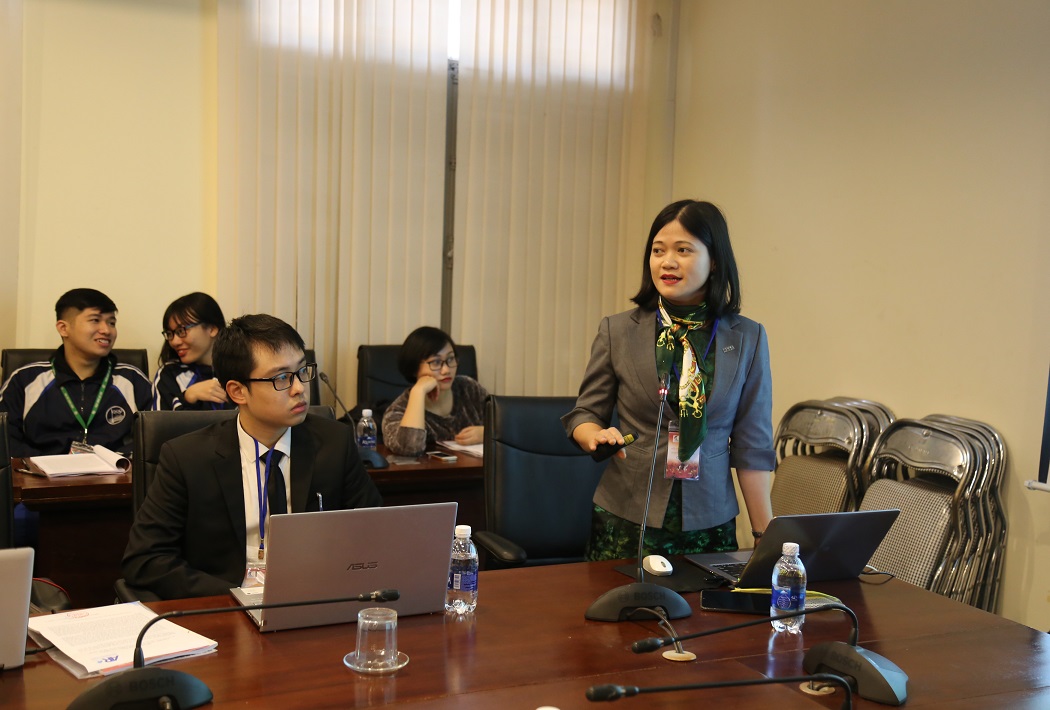
Two isConfucian intellectuals with Vietnamese history and culture in the early 20th centurywith papers referring to: from the paradigm theory, examining the transformation of the intellectual team from Confucianism to Western learning; the role of the Confucian intellectual team in the early 20th century; comparative research on the feminist ideology and education of Suong Nguyet Anh and RAKatini; the path of action of progressive Confucian scholars in the early 20th century; historical figures such as Nguyen Van Vinh, Nguyen Van To...
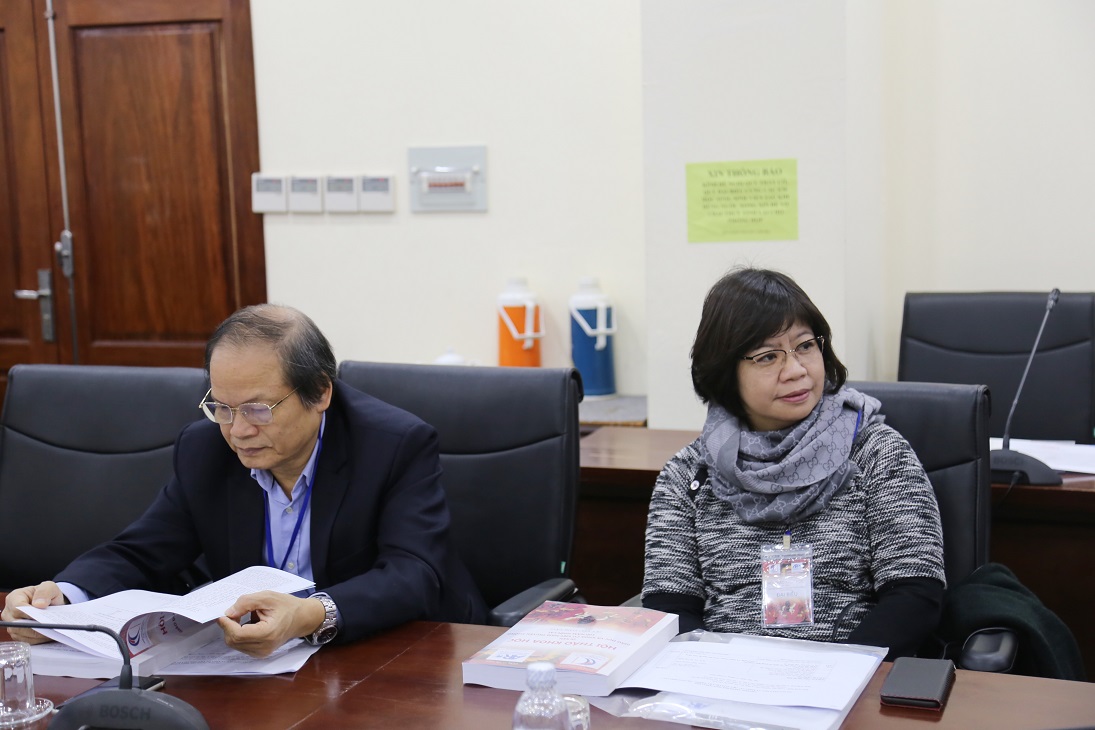
Three isTraditional educational and mandarin heritage in contemporary life, including discussions on: analysis of the two-sided impact of Confucianism and Confucianism on contemporary Vietnamese society; Confucian education as a cultural foundation or historical sinner; traditional Confucian heritage in the contemporary context; the mark of Confucian tradition in education in the South before 1975...
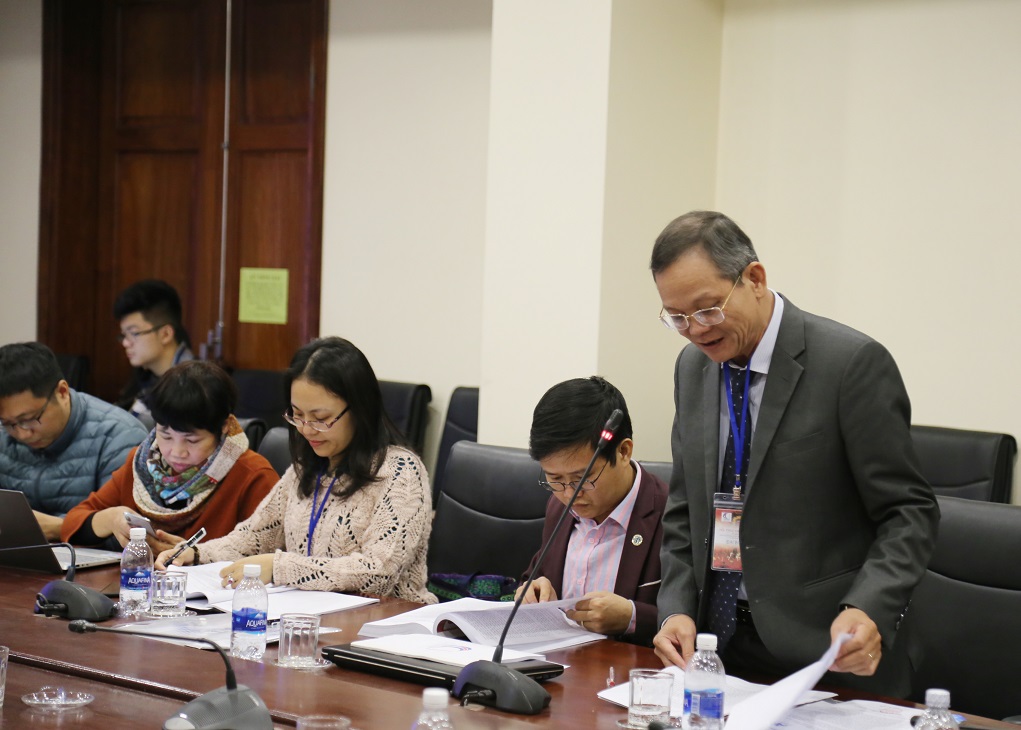
The workshop attracted the participation of researchers from Hanoi National University, Hanoi Pedagogical University I, Hanoi Pedagogical University II, University of Science - Hue University, Capital University...; Institute of Han Nom Studies, Institute of History, Institute of Cultural Studies under Vietnam Academy of Social Sciences, Center for Cultural and Scientific Activities of Temple of Literature - Quoc Tu Giam...
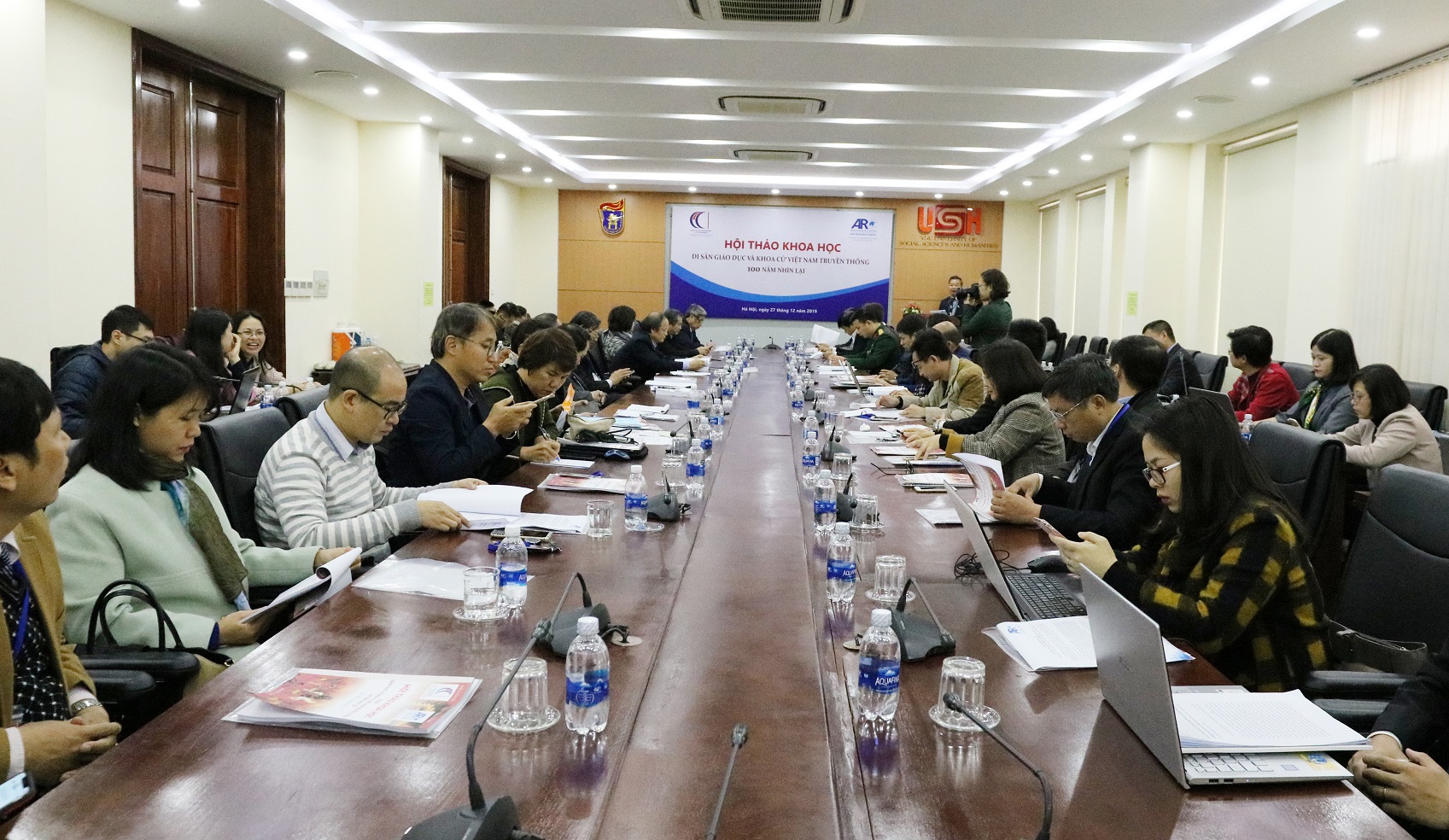

|
The Center for Research and Promotion of Cultural Resources, University of Social Sciences and Humanities was established in July 2018, stemming from the need for training and research on culture in general and cultural resources in particular. Although newly established, after more than a year of operation, the Center has initially had outstanding cooperation activities to help localities in researching, preserving and promoting cultural resources for sustainable development.
|
Author:Ussh. Photo: Thanh Ha, Doan Van Luan
Newer news
Older news